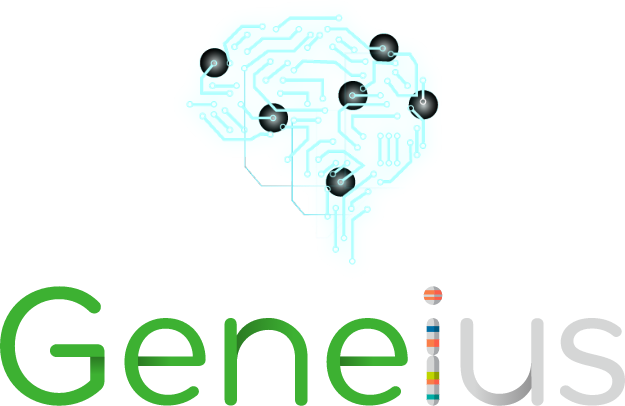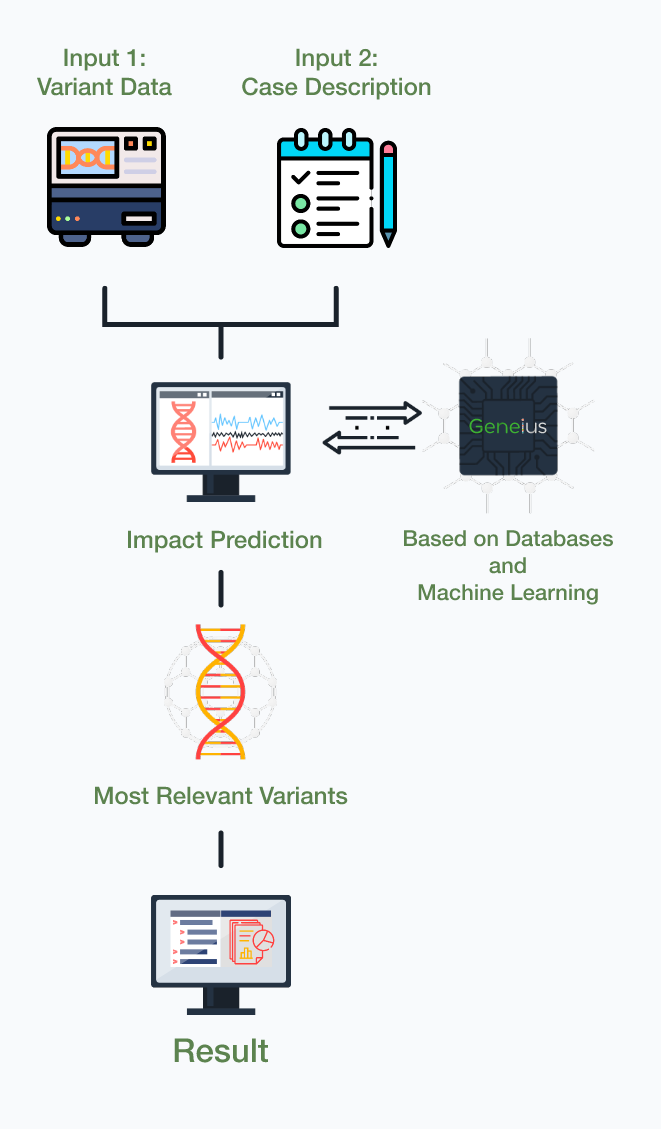
Introduction
Geneius is a great tool that utilizes the power of artificial intelligence and machine learning algorithms to analyze genetic data and provide insights into the clinical consequences of a person’s genetic makeup. It leverages large clinical genomics and disease ontology databases and utilizes advanced computational algorithms to identify impactful genomic alterations that may be difficult to detect using traditional genetic analysis techniques It provides a reduced set of variants most likely to be a concise and prioritized list of variants that are deemed medically significant based on a given case description, thus enabling clinicians to focus on the most relevant genomic alterations for diagnosis and treatment.
Why Geneius?
The Process
Data Input: Geneius requires genetic data single nucleotide variant (SNV), optional copy number variation (CNV) from target individuals, which can be obtained through various methods such as DNA sequencing. Subsequently, a verification process is initiated to ensure the integrity of the files.
Data Analysis: It uses algorithms to predict phenotypic consequences of a genomic alteration or mutation.
Variant Classification: Geneius then assigns a classification to each identified variant based on the provided case description and the known clinical significance of the variant.
Summary: Geneius provides a comprehensive summary and also ranks the most likely impactful alterations relevant to the case description aiding researchers and healthcare professionals in making informed decisions about genetic variants and linking them to various resources.
